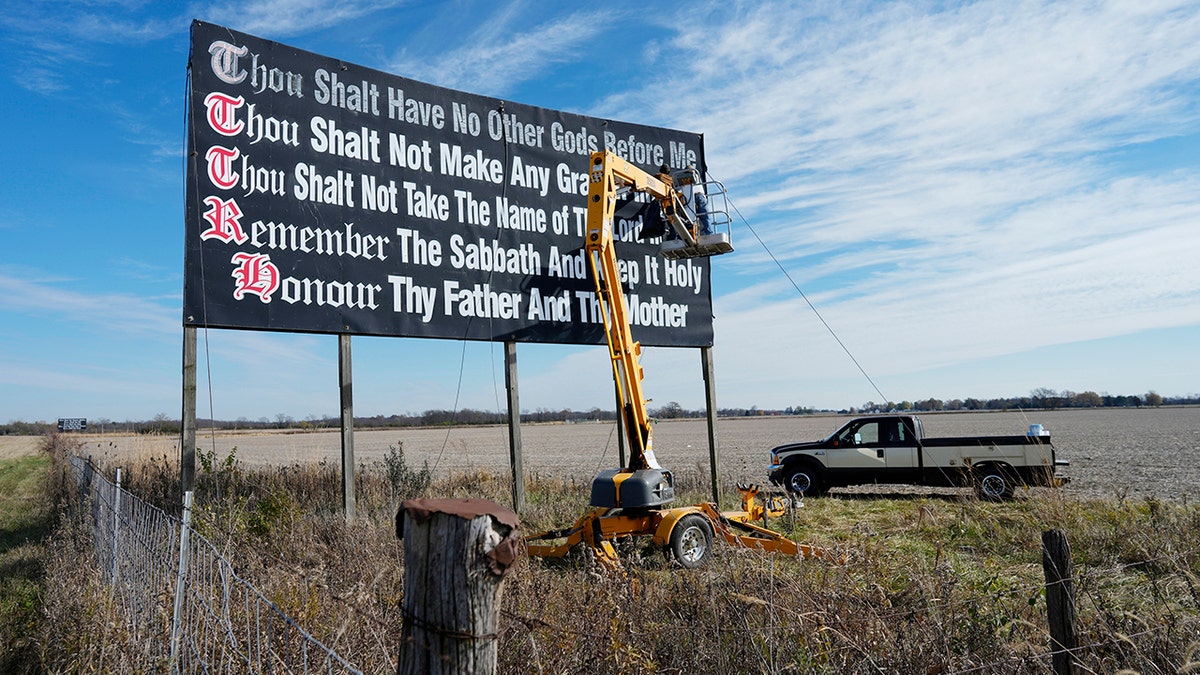Louisiana is the first state to require the display of the Ten Commandments in every public school classroom after Republican Gov. Jeff Landry signed a bill into law Wednesday.
Under the legislation, H.B. 71, a poster-sized display of the Ten Commandments in “large, easily readable font” is required in all public classrooms, from kindergartens to state-funded universities. Over the weekend, Landry touted the bill at a fundraiser in Tennessee.
“I’m going home to sign a bill that places the Ten Commandments in public classrooms,” he said, according to a report in the Tennessean. “And I can’t wait to be sued.”
LOUISIANA CLASSIFIES ABORTION DRUGS AS CONTROLLED, DANGEROUS SUBSTANCES AFTER GOV. LANDRY GREENLIGHTS PROPOSAL
The American Civil Liberties Union of Louisiana said Wednesday that it will file a legal challenge to the law, saying it violates a long-standing U.S. Supreme Court precedent and the First Amendment.
“We are preparing a lawsuit to challenge H.B. 71. The law violates the separation of church and state and is blatantly unconstitutional,” the ACLU said in a joint statement with Americans United for Separation of Church and State and the Freedom from Religion Foundation. “The First Amendment promises that we all get to decide for ourselves what religious beliefs, if any, to hold and practice, without pressure from the government. Politicians have no business imposing their preferred religious doctrine on students and families in public schools.”
The groups said the new law will send a “chilling message” to students and families who don’t follow the state’s preferred version of the Ten Commandments.
However, Matt Krause, counsel at the First Liberty Institute, heralded the decision, arguing, “The Pelican State has rightly recognized the history and tradition of the Ten Commandments in the state. Putting this historic document on schoolhouse walls is a great way to remind students of the foundations of American and Louisiana law.”
In 1980, the high court ruled that a similar Kentucky law was unconstitutional and violated the establishment clause of the U.S. Constitution, which says Congress can “make no law respecting an establishment of religion.” The high court found that the law had no secular purpose but rather served a plainly religious purpose.
LOUISIANA BILL TO CASTRATE SEX OFFENDERS MOVING TOWARD GOVERNOR’S DESK FOR SIGNATURE

Proponents of the law say the purpose of the measure is not solely religious, but that it has historical significance. In the law’s language, the Ten Commandments are described as “foundational documents of our state and national government.”
The displays, which will be paired with a four-paragraph “context statement” describing how the Ten Commandments “were a prominent part of American public education for almost three centuries,” must be in place in classrooms by the start of 2025.
The posters will be paid for through donations, not state funds. The law also “authorizes,” but does not require, the display of the Mayflower Compact, the Declaration of Independence and the Northwest Ordinance in K-12 public schools.
Other states like Texas and Oklahoma have proposed similar bills but haven’t been able to pass them amid threats of legal battles over constitutionality issues.
The Associated Press contributed to this report.
Read the full article here











